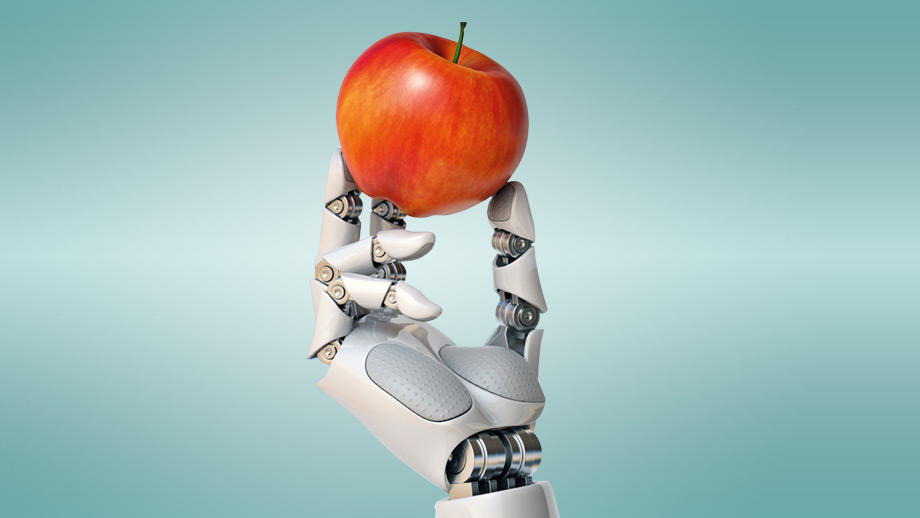
Eric Topol pens book on artificial intelligence in medicine
New book shows how artificial intelligence will empower physicians and patients with potential to revolutionize healthcare---and bring back the care.
March 12, 2019
The relationship between doctors and patients has eroded over recent decades, with minimal time and keyboards as the main culprits. Physicians—and all clinicians—are experiencing burnout at increasing rates, and superficial contact with patients is resulting in diagnostic errors and unnecessary tests and procedures.
In his latest book, Deep Medicine: How Artificial Intelligence Can Make Healthcare Human Again , Eric Topol, MD, reveals how artificial intelligence (AI) can help restore the critical human connection between doctor and patient. Described by many in the medical field as a futurist, Topol gives readers a deep dive into how AI will not only transform the practice of medicine, but also radically reshape health systems and impact biomedical research.
A pioneer of individualized medicine and founder of the Scripps Research Translational Institute, Topol is a physician-scientist whose work melds genomics, digital medicine and, increasingly, AI. Weaving examples from his own experiences as a cardiologist, researcher and patient with expert interviews and in-depth reviews of current AI literature, Topol presents a provocative and hopeful vision of the future of medicine.
“We currently live in a world of shallow medicine,” Topol writes. “Patients exist in a world of insufficient data, insufficient time, insufficient context, and insufficient presence.”
To counter ‘shallow medicine,’ Topol lays out the three components of what he calls the ‘deep medicine’ model.
The first component, deep phenotyping, consists of completely defining each individual by gathering all available data‒from medical, social, behavioral and family histories to multiple layers of one’s biology, including DNA, RNA, proteins, microbiome and others.
The second component, and the central focus of the book, is deep learning. This involves pattern recognition and machine learning that doctors will use for diagnosis, virtual medical coaching to guide consumers to better manage their health, and machine vision to improve patient safety both in hospitals and through at-home monitoring. It will also facilitate the discovery of new drugs and help extract insights from complex data sets, such as whole genome sequences.
The final segment is deep empathy and the connection between patients and physicians. Topol outlines how AI can restore the essential human element of medical practice by enabling machine support of tasks better suited for automation, thereby freeing doctors, nurses and other healthcare professionals to focus on providing real care for patients.
Topol emphasizes that AI on its own will not fix the current challenges of ‘shallow medicine.’ “The field is long on AI promise but very short on real-world, clinical proof of effectiveness,” he writes.
Significant strides are being made in the adoption of AI in fields that involve pattern recognition, such as radiology, ophthalmology, pathology and dermatology, but as Topol describes in Deep Medicine, it has great potential to support many other areas, including mental health, nursing and personalized nutrition.
“One of the most important potential outgrowths of AI in medicine is the gift of time,” Topol writes. “It will take many years for all of this to be actualized, but ultimately it should be regarded as the most extensive transformation in the history of medicine.”
Deep Medicine, published by Basic Books, is Topol’s third book on the future of medicine. The first, The Creative Destruction of Medicine, mapped out how sensors, sequencing, imaging and many other technologies could be used to digitize human beings. His second book, The Patient Will See You Now, addressed medical paternalism and the democratization of medicine—giving patients access and ownership of personal health data, and empowering them to take charge of their own health.
###
Reviews and media coverage of Deep Medicine (Note - this list will be updated as articles are published):
How algorithms could bring empathy back to medicine, Nature
How Artificial Intelligence Could Transform Medicine, The New York Times
A Doctor’s Prescription for More AI in Medicine, The Wall Street Journal
Eric Topol On Deep Medicine, AI’s Healing Hands, And The Future of Healthcare, Forbes
Cardiologist Eric Topol on How AI Can Bring Humanity Back to Medicine, TIME
Will Machines Be Able to Tell When Patients Are About to Die?, Wired
How AI can improve quality of patients' time with doctors, Fox Business
Data sets can transform the future of cancer, medicine expert says, CNBC
A doctor explains how artificial intelligence could improve the patient-doctor bond, Verge
How Artificial Intelligence Can Make Doctors More Human, OneZero - Medium
Deep Medicine with Dr. Eric Topol, The HCBiz Show!
Is this the future of health?, The Economist
Eric Topol: EHRs have 'taken us astray,' but AI could fix healthcare in a 'meaningful and positive way', Healthcare IT News
How Artificial Intelligence Advances Could Actually ‘Make Health Care Human Again’, On Point Radio - NPR
Cardiologist Eric Topol explains how artificial intelligence can make doctors more humane, CNBC
For more information, contact press@scripps.edu

